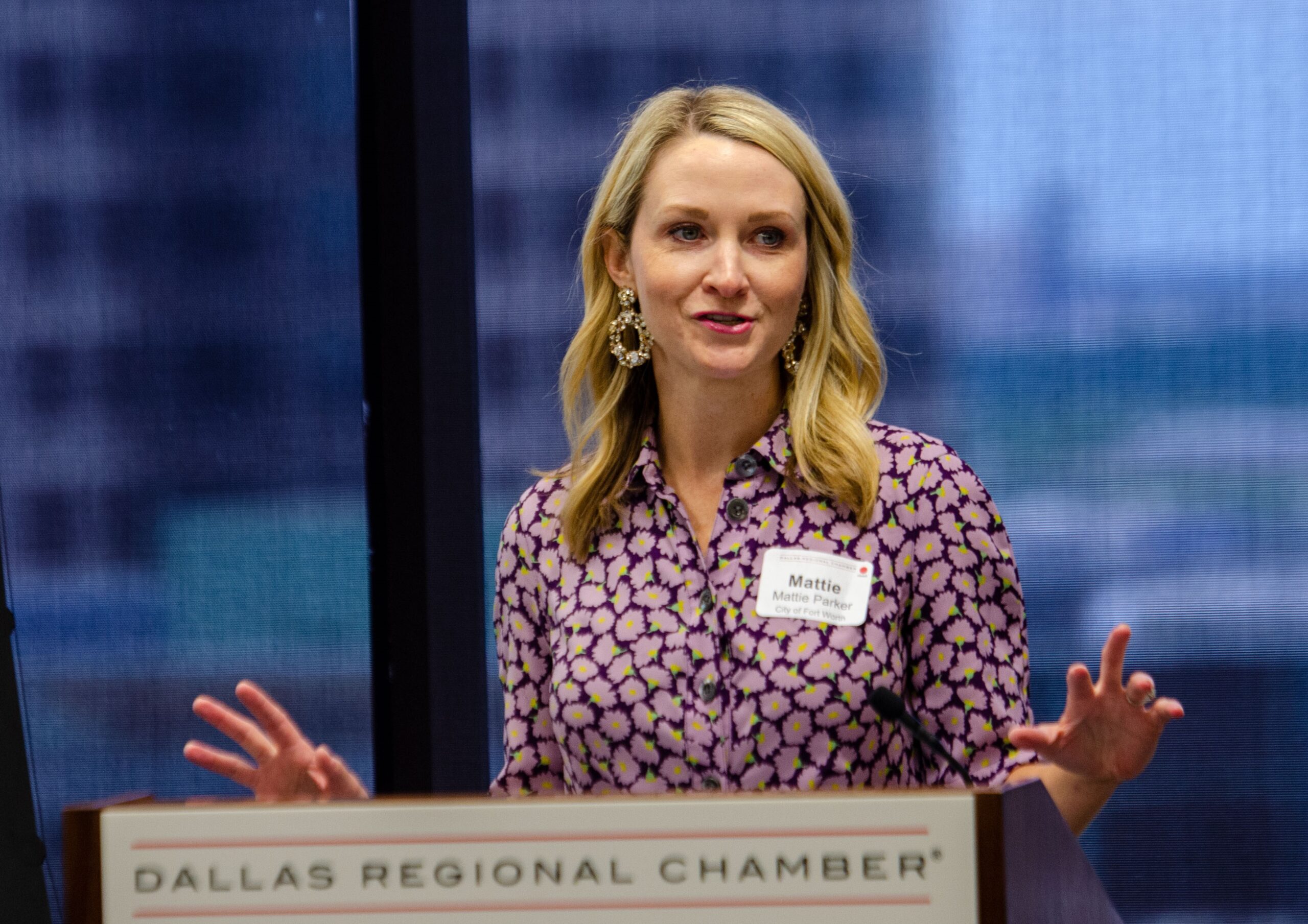Michael Wood, Managing Director, Education & Workforce
Fort Worth Mayor Mattie Parker has spent the first 12 months of her tenure leading the metroplex’s second-largest city beating the drum on an often-overlooked challenge facing North Texas families and the economy — child care.
“The American Dream really depends on getting [child care] right,” said Parker during the Dallas Regional Chamber’s third-annual State of Early Education event, presented by PNC Bank.
The case is simple — the economic cost of child care challenges is staggering. Parker cited research claiming that businesses in the United States lose roughly $13 billion annually due to workplace absences and turnover stemming from child care issues. A separate report commissioned by the U.S. Chamber of Commerce suggests that Texas businesses alone forfeit as much as $9 billion each year because of child care challenges.
Driving these challenges is the United States’ negligible investment in services for children under 5, which is a critical time for brain development. Per child, the U.S. spends roughly $500 on child care and other early education services.

“Compare us to other developed nations that are leading the way in innovation and education,” said Parker. “Places like Norway spending $30,000, and Germany spending $20,000.”
Instead, the financial burden of child care in the United States falls on families, resulting in what Parker calls a debilitating cost. In fact, the annual cost of child care can often exceed the price of in-state tuition at a four-year university.
The high price tag on child care, paired with the challenges presented by the COVID-19 pandemic, has driven women out of the workplace. The U.S. is currently at a 33-year low in female participation in the workforce.
It’s not all bad news, though. For one, the federal government made significant new investments in child care through the CARES Act and the American Rescue Plan, also known as ARPA. Under Parker’s leadership, Fort Worth and Tarrant County have leveraged these funding streams to expand child care access and support providers.
Fort Worth used $7 million to make capital improvements for three child care centers in high-needs areas, and another $3 million was directed to build a new child care facility in South Fort Worth, a historically underserved community. And $2 million was invested in a pilot program to provide stipends for child care workers — essential but underpaid professionals who often make less than cashiers. On top of those investments, Tarrant County committed $45 million of their federal allocation to child care supports.
Still, there remains opportunity for the private sector to enhance the progress being made by governments.
“There’s been a renewed interest from corporate America in a variety of different issues,” said Parker. “I wish they would focus on this one [child care].”
Parker sees a role for business in advocating for change in local, state, and federal governments, but also in promoting family-friendly practices and benefits in the workplace. Not only do these policies help working parents, but they also benefit a company’s bottom-line.
“Eighty percent of people would move, change, or stay just for [family-friendly benefits] alone,” said Parker.
Mayor Parker was instrumental in pioneering The Best Place for Working Parents® initiative, which originated in Fort Worth in 2020, to drive this point home for businesses. Today, the initiative is active in six Texas cities, including Dallas, and seven states across the country.
In Dallas, 109 companies have received The Best Place for Working Parents® designation this year for their commitment to a selection of family-friendly benefits, including paid parental leave and child care assistance.
The campaign, which has now recognized more than 700 companies nationwide, is the first step in facilitating deeper corporate engagement in child care. Mayor Parker is adamant that, through public advocacy and innovations on family-friendly policies, the private sector will play a key part in addressing this issue for American families.
“The good news is this,” said Parker. “The private sector will solve this problem.”
The State of Early Education was presented by PNC Bank. Dallas College was a Silver Sponsor.